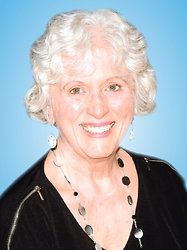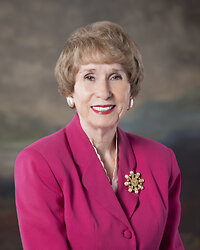I think Charlie Brown set a good example for us by simply being himself. We loved him just as he was - imperfect; in fact we loved him more because of his imperfection; maybe more yet because he knew that he was imperfect and that it showed. Wouldn't it be wonderful if we all could admit that we are imperfect and just do the best we can, trying to be less imperfect of course, but accepting ourselves and others just as we are and not being afraid to let it show.

There are days when someone asks me, "How are you?" and I want to reply, "I'm feeling a little down today," rather than saying, "Fine." I'd actually rather someone I care about say that to me, wouldn't you? The fact is that most of the time those I really care about do answer me truthfully; and I them.
Discounting pathological liars, and there really are some of those, most of us do not intend to deceive, only to "put our best foot forward." What we need to remember is that, instead of allowing himself to be vulnerable, Charlie Brown tried to put his best foot forward and it often tripped him up, and our hearts went out to him. People do care, and will care; we just need to let them know we need them to care.
We need to practice being vulnerable (and that is what we are when we tell our truth - vulnerable) if it is not our natural state. We can start with the little things, such as not saying we are "fine" when we aren't. The time may come when there is a great deal at stake, hinging on our ability to be truthful and vulnerable. If we hope to be able to be vulnerable when it may be life altering, we need to make it a habit. Relationships hang on our being truthful with our feelings. How many couples break up saying, "I never loved you anyway," when a simple, "I'm heartbroken" would say it all - and leave a door open for reconciliation. Would there be as many divorces in the world if people could say, "Please stay" rather than the "face saving" command, "Get out!" ?
Families fall by the wayside when a heart-to-heart could often eliminate years of pain and misinformation. How many children have been turned away from one parent by the other parent, simply because that parent couldn't bring himself or herself to admit painful truths? If you feel uncomfortable reading this, maybe you hid truths from your child, causing pain for your child and the other parent. The sooner you correct the situation, the better. Children, little or grown, can forgive a parent almost anything when the parent is vulnerable. In fact, I believe most of us can forgive almost anything sincerely confessed. And, believe it or not, it has been my experience that truth has a way of surfacing, sooner or later. At the bottom of almost every falling out there is one central problem - someone believes someone else didn't love him or her enough. Am I right? We've all known Charlie Brown. He is us.
Jean Loxley-Barnard has been a writer all her life and studied both sociology and psychology at George Washington University where she earned a B.A. Her company, The Shopper, Inc., encompasses all the Loxley-Barnard family publications - The Shopper Magazines and Doctor to Doctor Magazine. She has been in the advertising, consulting and publishing business for 39 years.
CURRENT COLUMNS
Relationships 
When Your Security Blanket is in the Dryerby Dr. Bill AustinOn The Front Porch With You 
Memories of Homeby Rob LauerPublisher’s Point 
Time To Moveby Jean Loxley-BarnardChildren First 
Dandelion Timeby Becky Adams
